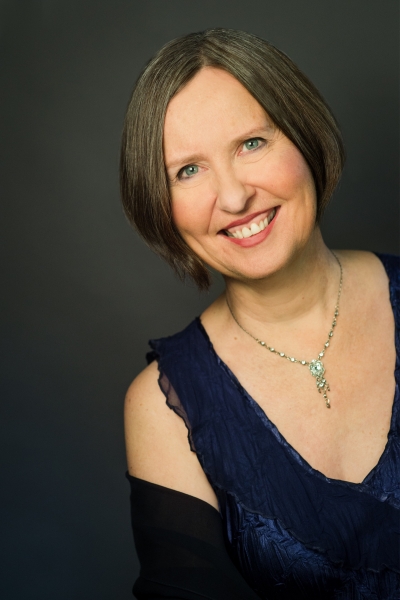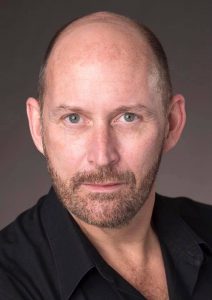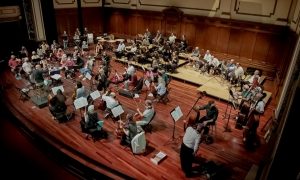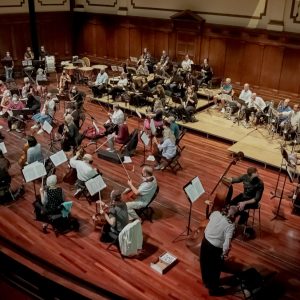by Mark G. Auerbach
The first Springfield Symphony Orchestra performance of the New Year had many causes for celebration. First, Symphony Hall was filled with the sounds of three classics by Haydn, Mozart, and Beethoven, all programmed to show the artistry and virtuosity of the Orchestra. Maestro Kevin Rhodes returned to the podium, after a sold-out run conducting Swan Lake in Germany at the Stuttgart Ballet. The guest pianist, Diane Walsh, has a distinctive resume performing with orchestras and ensembles, and she shared the stage with Jane Fonda, when the movie star returned to Broadway after a 40 year absence to star in Moises Kaufman’s 33 Variations. The Orchestra played at peak. Miss Walsh was a revelation, and we are so lucky to have Maestro Rhodes conducting.
I came to Symphony Hall to participate in the SSO’s new audience development innovation, Real Time Concert Notes, devised by Maestro Rhodes and Matt Bertuzzi, music director of the Springfield High School of Commerce band. For the selected piece of music, in this case Beethoven’s Eroica, we trekked up multiple flights of stairs to the second balcony, turned on our cellphones, and Bertuzzi texted carefully-crafted messages about the music being performed to either provide insight, or to alert us to something about to be played. There were about thirty of us along for the ride.
I have trepidations about performances and cellphones. It breaks my concentration during a show to see a phone light up in a theatre, or to hear the ping of an incoming text, or worse, a ringing phone. I find it rude to the actors onstage and fellow audience members. I was incensed last summer at a performance in the Berkshires, when a fellow arts reporter was sending and receiving texts during a particularly sensitive passage of an Albee play.
In Real Time Concert Notes, I found the contents of the texts informative and well-timed, but it broke my concentration in the music, partly because other texts came through, and the desire to check Facebook and Twitter was pulling me away from the performance. My partner, who is more text savvy than me, did not find the experience distracting from the music. I may have been the odd man out, because the folks up in te balcony were younger, and I’m one of those traditionalists who needs to block out everything around me and just listen to the music.
I know that the Springfield Symphony’s Real Time Concert Notes is a work-in-progress, and I give it an enthusiastic “thumbs up”. If the Springfield Symphony is going to use the otherwise sparsely-filled second balcony for this, I’d recommend putting better lighting and bright yellow lines on the steps leading up to the heavens, and railings on the steep incline. Maybe Mr. Bertuzzi’s notes could begin during the intermission before the music begins, so there are segments of music without texts. Hopefully, the SSO will market this innovation more.
Maestro Rhodes and The Springfield Symphony Orchestra return to Symphony Hall on February 10 with violinist Caroline Goulding and Vivaldi’s The Four Seasons. On March 3, Rhodes and company serve up The Star Wars & Star Trek Sci-fi Spectacular. For details: 413-733-2291 or www.springfieldsymphony.org.
—–
The Springfield Symphony Orchestra, Kevin Rhodes, Music Director, performing Haydn’s Desert Island Overture; Mozart’s Piano Concert No. 20, K.466, D minor, and Beethoven’s Symphony No. 3, Op. 55, E flat major (Eroica). Featuring Diane Walsh, pianist.. January 21, Springfield Symphony Hall. For details: 413-733-2291 or www.springfieldsymphony.org.
—
Mark G. Auerbach studied theatre at American University and the Yale School of Drama. He’s worked for arts organizations and reported on theatre for newspapers and radio. Mark produces and hosts ArtsBeat Radio on 89.5fm/WSKB Radio.






